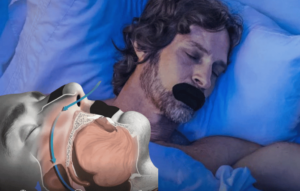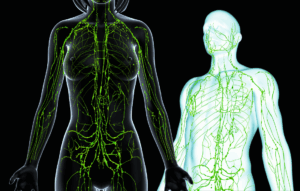Modern healthcare often feels like an elaborate maze where the walls are lined with prescription pads and the exits are obscured by bureaucracy. For those who have tried to navigate this system, the realization is often harsh: it isn’t built to promote your health but to manage your sickness. This is why self-governance in health has become not only an option but a necessity.
Before diving into the shortcomings of the medical industrial complex, it’s important to recognize the invaluable contributions of medical professionals. From saving lives in emergency rooms to performing life-changing surgeries, these individuals work tirelessly to provide critical care daily. I’ve spent more than my fair share of time in emergency rooms for broken bones and stitches, and I’m profoundly grateful for the skilled hands and sharp minds that got me through those moments. This article is not a critique of their dedication but of the larger system that often fails them—and us.
I must also clarify that I am not a medical professional; nothing in this article should be taken as medical advice. While this discussion aims to highlight systemic issues within the healthcare industry, it is not meant to discourage seeking medical care when it is needed.
The system, for all its technological advancements, is plagued by inefficiencies, financial burdens, and a one-size-fits-all approach that disregards individuality. By taking your well-being into your own hands, you can bypass much of the system’s failures and thrive. Let’s explore how and why.
The “Sick-Care” System: A Vicious Cycle of Dependency
The U.S. healthcare system is the most expensive globally, yet it consistently underperforms in key areas such as life expectancy and chronic disease management. Rather than fostering true health, the system profits from perpetual illness. Insurance premiums, out-of-pocket costs, and surprise bills are just the tip of the iceberg. As highlighted in Vox’s breakdown of health cost-sharing ministries, the financial strain of unexpected medical expenses is a shared nightmare for many Americans. Yet, even in alternative systems, the reliance on reactive treatments over preventive care persists.
This “sick-care” model perpetuates a culture of dependence. The average patient is conditioned to outsource their health to doctors and pharmaceutical companies without ever questioning the root causes of their ailments. Feeling tired? Here’s a pill. Overweight? Here’s another. Depressed? Take a handful more. While medications and treatments have their place, they often serve as band-aids for deeper issues, leaving the underlying problems unaddressed.
The problem is compounded by the sheer complexity of the system. Patients often face long wait times, misdiagnoses, and conflicting medical advice. Many become trapped in a cycle of endless referrals and unnecessary tests. This creates a sense of helplessness, reinforcing the notion that true health is unattainable without intervention from professionals. But the truth is, genuine health comes from within—and it starts with reclaiming control.
Breaking Free: The Case for Self-Governance
Self-governance in health means assuming responsibility for your own well-being. It’s about learning to listen to your body, understanding its needs, and making informed choices that align with a long-term vision of vitality rather than short-term symptom suppression.
Modern medicine often “medicalizes” common health concerns, offering quick fixes that overshadow the importance of lifestyle changes. For example, testosterone replacement therapy has become a booming industry, but the root causes of low testosterone—poor diet, lack of exercise, and chronic stress—are rarely addressed. Similarly, medications for conditions like hypertension or type 2 diabetes often act as temporary patches rather than permanent solutions.
This isn’t to say medical interventions don’t have their place—they absolutely do. But they should complement a proactive approach to health, not replace it. The goal is to create a partnership with healthcare providers rather than total reliance on them. By understanding the interconnectedness of lifestyle factors, you can preemptively address potential health issues before they require medical intervention.
The Pillars of Health Self-Governance
To reclaim your health, you need to focus on foundational pillars that empower you to thrive outside the constraints of the broken system. Here are some key strategies:
1. Nutrition: Eat for Fuel, Not Convenience
The food you consume directly impacts your energy levels, hormones, and overall vitality. Highly processed foods, seed oils, and sugar-laden snacks are the antithesis of health. Instead, prioritize:
Organic, grass-fed, and grass-finished meats
Pasture-raised eggs
Organic fruits and vegetables
Raw dairy (raw is law)
Eating whole, nutrient-dense foods is not just about fueling your body but giving it the tools to heal and regenerate. Beyond physical health, nutrition also affects mental clarity, mood stability, and even sleep quality.
Cultivating a connection with your food is another powerful step. Growing your own produce, sourcing ingredients from local farmers, or simply cooking meals from scratch helps you develop a deeper appreciation for what you consume.
2. Exercise: Move with Purpose
Your body was designed to move. Sedentary lifestyles are one of the greatest threats to health in the modern age. Commit to regular physical activity that incorporates:
Strength training for muscle and bone health
Cardiovascular exercise for heart health
Mobility and flexibility work to prevent injuries
Movement doesn’t have to be confined to the gym. Hiking, dancing, martial arts, or even playing a sport can provide immense benefits while keeping you engaged and motivated. Exercise also releases endorphins, reducing stress and improving mood.
3. Stress Management: Prioritize Mental Resilience
Stress is a silent killer. Chronic stress contributes to inflammation, hormonal imbalances, and even mental health disorders. Techniques like meditation, breathwork, and grounding can drastically improve your resilience to stressors. Consider practices like journaling or spending time in nature to deepen your connection with yourself and reduce external pressures.
Social connections also play a vital role in managing stress. Surround yourself with supportive, like-minded individuals who uplift and encourage you on your health journey.
4. Sleep Hygiene: Optimize Recovery
Quality sleep is non-negotiable. Invest in sleep hygiene practices such as reducing blue light exposure at night, sleeping in a dark, cool room, and maintaining a consistent sleep schedule. Poor sleep affects nearly every aspect of health, from immune function to hormonal balance.
Additionally, consider monitoring your sleep with wearable technology to identify patterns and optimize recovery. Restful sleep allows your body to repair itself, consolidating memory and preparing you for the day ahead.
5. Educate Yourself: Be Your Own Advocate
The age of information gives you access to a wealth of knowledge about health and wellness. However, not all sources are credible. Seek out peer-reviewed studies, holistic health experts, and real-world case studies to make informed decisions about your well-being. By understanding the basics of nutrition, exercise physiology, and stress management, you’ll be better equipped to make decisions that align with your personal goals.
Education doesn’t stop at information gathering. Implementing and experimenting with what you learn helps you discover what works best for your unique body and lifestyle.
6. Preventive Measures: Stay Ahead
Preventive health is far more cost-effective and impactful than reactive care. Regularly monitor your health through blood tests, functional medicine assessments, and self-checks. Identify potential issues early and address them proactively.
Screenings for common deficiencies, such as vitamin D or magnesium, can be particularly enlightening. By addressing these gaps, you can prevent downstream health complications.
The Role of Alternative Models
For those wary of traditional health insurance, cost-sharing ministries, and direct primary care models offer alternatives. While these systems have their flaws, as detailed in the Vox article, they encourage a level of personal responsibility and community support often absent in conventional insurance. These models can serve as a stepping stone toward a more empowered approach to health.
Consider community-based initiatives such as local co-ops for fresh produce or fitness groups that foster accountability and shared goals. These alternatives not only save money but also build connections with like-minded individuals committed to health.
The Mental Shift: From Victim to Owner
Adopting self-governance in health requires a fundamental shift in mindset. It’s about rejecting the narrative that you are a passive recipient of care and embracing the role of an active participant in your own well-being.
This shift can feel overwhelming at first, especially if you’ve spent years relying on others to make health decisions for you. Start by setting small, achievable goals. Replace one processed meal a day with a homemade alternative. Swap a sedentary evening for a 20-minute walk. Over time, these incremental changes create momentum, leading to a lifestyle built on self-reliance.
Bold Steps Toward Health Freedom
Reclaiming your health isn’t about rejecting the healthcare system entirely but about acknowledging its limitations and stepping up where it falls short. Start small: prepare your meals, walk daily, prioritize sleep, and educate yourself. Over time, these small acts of self-governance will compound, leading to profound changes in your health and quality of life.
Self-governance isn’t just about survival; it’s about thriving. When you take control of your health, you free yourself from the chains of a broken system and create a life of vitality, resilience, and independence. The tools are already in your hands. Use them to build a life where your health isn’t dictated by external forces but by your own informed, intentional choices.




















